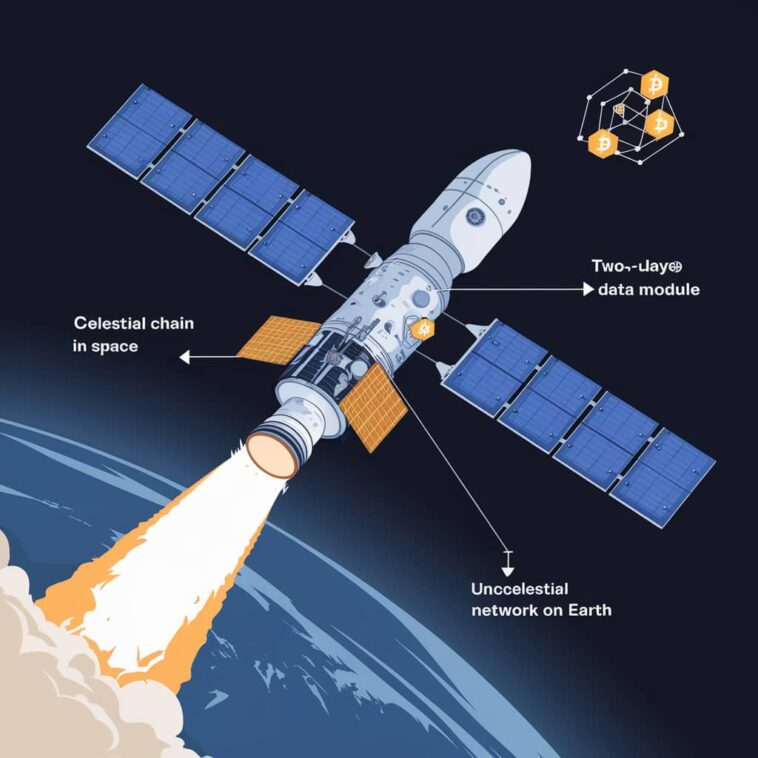Spacecoin XYZ just launched its first satellite into orbit, kicking off its mission to create a space-based blockchain network. This is the first step in building a decentralized infrastructure that operates beyond Earth.
A Big Step for Blockchain
Daniel Bar, Spacecoin’s co-founder, called this launch a huge milestone. The satellite, sent into orbit on Dec. 21 aboard SpaceX’s Falcon Heavy, is just the beginning. By 2025, Spacecoin plans to launch 7–10 more satellites to power its blockchain network fully.
What’s on the Satellite?
The satellite carries two “crypto engines,” about the size of hard drives, and a data module similar to a MacBook. These components are attached to the satellite’s core system and powered by solar panels while in orbit.
Why Space Matters for Blockchain
Dahlia Malkhi, an adviser and computer science professor, explained that the goal is to create a tamper-proof space data center. Once in orbit, the hardware is completely secure from interference—even by Spacecoin itself.
“It’s like a trusted hardware platform in space. You can’t mess with it,” Malkhi said.
A New Kind of Blockchain
Spacecoin’s Blue Paper details its vision for a two-layer blockchain system:
Celestial Chain: A space-based layer-1 blockchain that serves as the ultimate authority.
Uncelestial Network: An Earth-based layer-2 system.
The Celestial Chain is designed to preserve an immutable history, potentially outlasting life on Earth.




